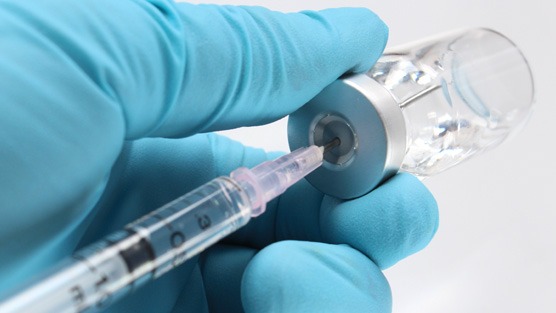Hormone Therapy for Cancer in Czech Republic
Search and Compare the Best Clinics and Doctors at the Lowest Prices for Hormone Therapy for Cancer in Czech Republic

Find the best clinics for Hormone Therapy for Cancer in Czech Republic
No clinics available
Thailand offers the best prices Worldwide
Price: $ 15

- Home
- Czech Republic
WHY US?
At Medijump, we're making medical easy. You can search, compare, discuss, and book your medical all in one place. We open the door to the best medical providers worldwide, saving you time and energy along the way, and it's all for FREE, no hidden fees, and no price markups guaranteed. So what are you waiting for?

Free

Best Price

Widest Selection

Risk-Free
What you need to know about Hormone Therapy for Cancer in Czech Republic

Hormone therapy (also known as hormonal therapy, hormone treatment, or endocrine therapy) is a cancer treatment that uses medicine to lower or block the number of hormones in the body to stop or slow the growth of cancer. The aim of the procedure is to treat cancer and ease cancer symptoms. The procedure is mainly used to treat breast cancer, ovarian cancer, womb cancer, and prostate cancer that use hormones to grow and is usually used along with other cancer treatments.
What does a Hormone Therapy for Cancer Procedure Involve?
Hormone therapy involves taking medication that prevents cancer cells from getting the hormones they need in order to grow, which may be given orally (in pills that you swallow) or injected into a muscle in your hip, thigh, arm, leg, or belly. Some frequently used hormone therapy drugs are abiraterone, anastrozole, exemestane, fulvestrant, letrozole, leuprolide, and tamoxifen. In some cases, your doctor may also remove the gland responsible for hormone production with surgery.
How Long Should I Stay in Czech Republic for a Hormone Therapy for Cancer Procedure?
Your length of stay depends on how many cycles are needed for your specific case. During your hormone therapy, you will need to meet your oncologist regularly for follow-up visits to see how your body is responding to the medications.
What's the Recovery Time for Hormone Therapy for Cancer Procedures in Czech Republic?
You may be able to resume your normal activities and work the next day after you receive the hormone medications or when you do not feel any symptoms that interfere with your ability to perform your daily activities. If you undergo surgery to remove the gland responsible for hormone production, you may need to take 4 weeks off work and avoid any strenuous activities, such as intense exercise, for 6 to 8 weeks.
What sort of Aftercare is Required for Hormone Therapy for Cancer Procedures in Czech Republic?
Your doctor will give you aftercare instructions, which involve diet, exercise, and restrictions. You will need to attend regular follow-up checkups after your hormone therapy is complete to discuss ways of reducing and treating side effects as well as to watch for cancer recurrence.
What's the Success Rate of Hormone Therapy for Cancer Procedures in Czech Republic?
Hormone therapy has been shown to reduce the risk of cancer recurrence if performed along with other cancer treatments. It is also effective way to put cancer patients in remission, however, the treatment has some side effect and risks, such as hot flashes, fatigue, nausea, joint or muscle pain, blood clots, cataracts, stroke, heart disease, osteoporosis, erectile dysfunction (in men), as well as vaginal irritation, vaginal discharge, and vaginal dryness (in women).
Are there Alternatives to Hormone Therapy for Cancer Procedures in Czech Republic?
Other cancer treatments, such as surgery, immunotherapy, targeted drug therapy, and chemotherapy can be your alternative options. Discuss with your doctor the best choice for your specific condition.
What Should You Expect Before and After the Procedure
Cancer can prevent you from enjoying life and cause painful symptoms, and it can be life-threatening. After successful hormone therapy, you should be able to enjoy the things you love, your symptoms are relieved, and your life may be prolonged. Many patients are put in remission after treatment, meaning no cancer cells are found in their bodies.
Whilst the information presented here has been accurately sourced and verified by a medical professional for its accuracy, it is still advised to consult with your doctor before pursuing a medical treatment at one of the listed medical providers
No Time?
Tell us what you're looking for and we'll reachout to the top clinics all at once
Enquire Now

Popular Procedures in Czech Republic
Prices Start From $714

Prices Start From $2,487

Prices Start From $95

Prices Start From $2,487

Recommended Medical Centers in Czech Republic for procedures similar to Hormone Therapy for Cancer

- Interpreter services
- Translation service
- Religious facilities
- Medical records transfer
- Medical travel insurance
- Health insurance coordination
- TV in the room
- Safe in the room
- Phone in the room
- Private rooms for patients available

- Interpreter services
- Translation service
- Religious facilities
- Medical records transfer
- Medical travel insurance
- Health insurance coordination
- TV in the room
- Safe in the room
- Phone in the room
- Private rooms for patients available

- Interpreter services
- Translation service
- Religious facilities
- Medical records transfer
- Medical travel insurance
- Health insurance coordination
- TV in the room
- Safe in the room
- Phone in the room
- Private rooms for patients available

- Interpreter services
- Translation service
- Religious facilities
- Medical records transfer
- Medical travel insurance
- Health insurance coordination
- TV in the room
- Safe in the room
- Phone in the room
- Private rooms for patients available
Hormone Therapy for Cancer in and around Czech Republic
The Czech Republic is a landlocked country in Central Europe and it has a rich and eventful history, as well as amazing attractions. From medieval towns and magnificent castles to picturesque national parks and relaxing spa resorts, it has a lot to offer. The country also boasts top-quality healthcare and is emerging as a popular medical tourism destination. Medical procedures in the country are performed with the latest technology and techniques. The medical professionals are highly qualified, well trained, and internationally recognized. Besides, the cost of medical procedures in the country is extremely competitive. Medical tourists can make significant savings compared to most other countries in Europe. Cosmetic surgery is particularly popular among international medical tourists.
Popular Parts of Czech Republic
Prague is the capital and is popular for its fine dining, eccentric nightlife, and wonderfully preserved medieval buildings with Gothic architecture, such as Prague Castle, the 14th-century Charles Bridge, and the Astronomical Clock. Along with Prague, Ceský Krumlov and Brno are frequently visited by tourists as well.
Weather and Climate in the Czech Republic
Due to its location, the Czech Republic has a mostly temperate climate. Extreme weather is rare, but the summers can get hot and the winters cold. Summer starts in June and the days can be scorching hot. The average temperature is around 26°C, but in recent years, it tends to rise to 37°C. Winter, from November to March, can get rather cold. The average temperatures drop to around 2°C during the day and -2°C at night, with some snowfall and rain. Spring (March-May) and autumn (September – October) have beautiful weather.
Getting around in the Czech Republic
Václav Havel Airport Prague is the main airport where international visitors fly into and out of the Czech Republic. It serves numerous flights to many cities around Europe and Asia, including London, Moscow, Dubai, and Seoul. The Czech Republic has an affordable and reliable public transport system. Domestic flights are available, but rarely necessary. The rail network is affordable and very comprehensive, covering almost every city and town in the county. The bus also has extensive coverage throughout the country. Public transport within cities is also excellent. In major cities, you can opt for the metro, tram, bus, or trolleybuses. Taxis are widely available and are metered, but the fares are higher at night.
Tourist Visas in the Czech Republic
Nationals of all EU countries do not need a visa to visit and stay in the Czech Republic. The country is a part of the Schengen area, which means citizens of around 62 countries can stay for up to 90 days without a visa. These visa-exempt countries include Australia, Canada, the US, and South Korea. Citizens of other countries are required to apply for a visa before visiting the country. Those who want to receive medical care should obtain a Czech Republic Visa for Medical Purposes.
Additional Information
- Local Currency: Czech Koruna/Czech Crown (CZK) is the currency of the Czech Republic. 1 USD is equivalent to 22.98 CZK. Note that the euro is not widely accepted in the country.
- Money & Payments: ATMs are widespread around the Czech Republic. Major credit cards, such as MasterCard and Visa, are accepted for many types of transactions, but you may need to pay in cash for smaller amounts. Tipping is expected, especially in restaurants. Tip at least 10% of the bill.
- Local Language: The official and most commonly spoken language is Czech, but Slovak is widely spoken as well. Many people, particularly in major cities, can speak English and German.
- Local Culture and Religion: Most of the population is religiously unaffiliated and does not believe in God. However, Christianity is the largest religion. Judaism, Islam, Buddhism, and Paganism are also practiced by a small percentage of the population.
- Public holidays: New Year’s Day, Easter Monday, Liberation Day, Sts Cyril & Methodius Day, Jan Hus Day, Republic Day, and Czech Statehood Day are some of the most important public holidays in the Czech Republic.
Popular Searches
- Plastic Surgery in Thailand
- Dental Implants in Thailand
- Hair Transplant in Thailand
- Breast Augmentation Thailand
- Gastric Sleeve in Thailand
- Gender Reassignment Surgery in Thailand
- Laser Hair Removal in Bangkok
- Botox in Bangkok
- Dermatology in Bangkok
- Breast Augmentation in Bangkok
- Coolsculpting in Bangkok
- Veneers in Turkey
- Hair Transplant in Turkey
- Rhinoplasty in Turkey
- Stem Cell Therapy in Mexico
- Rhinoplasty in Mexico
- Liposuction in Mexico
- Coolsculpting in Tijuana
- Rhinoplasty in Korea
- Scar Removal in Korea
- Gastric Sleeve in Turkey
- Bone Marrow Transplant in India
- Invisalign in Malaysia
- Plastic Surgery in the Dominican Republic
- Tummy Tuck in the Dominican Republic
- Plastic and Cosmetic Surgery in Poland
- Rhinoplasty in Poland
- Hair Implant in Poland
- Dental Implants in Poland
- IVF in Turkey